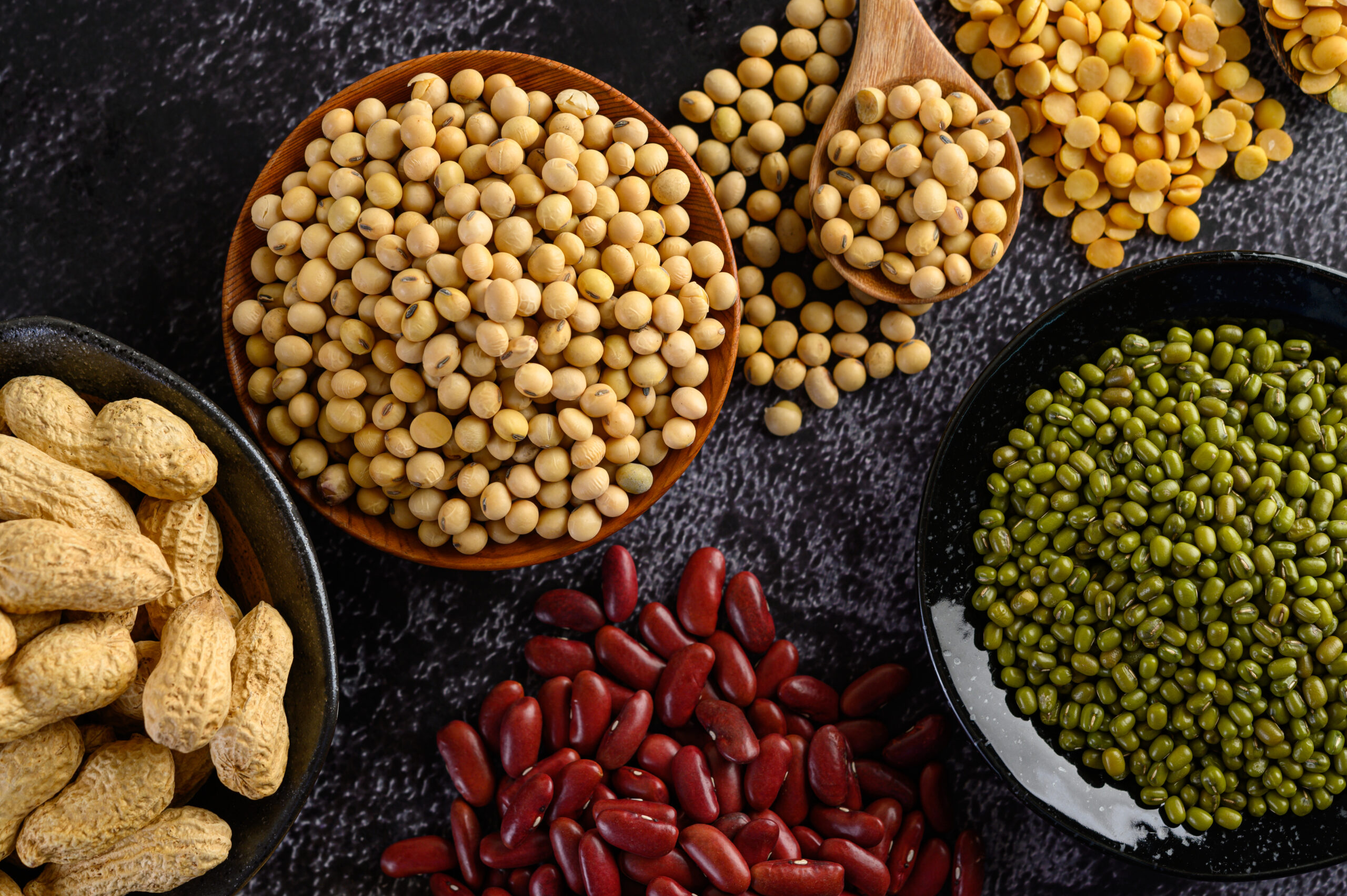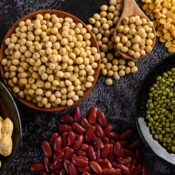
The Organic Revolution: Discover the Health Benefits of Organic Cereals and Pulses
Welcome to the organic revolution with Hemshree Exports https://hemshreeexports.com/ In a world where healthy choices are becoming increasingly important, organic cereals and pulses are making a transformative impact on our diets. Packed with essential nutrients and free from harmful pesticide residues, these wholesome foods are not only better for our bodies but also better for the environment.
Organic cereals and pulses are cultivated using natural and sustainable farming practices. This means no synthetic fertilizers, genetically modified organisms (GMOs), or chemical pesticides are used in the process. Instead, farmers rely on methods like crop rotation and composting to nourish the soil and promote biodiversity. The result? Nutrient-rich grains and legumes that are bursting with flavor and benefits.
Whether you're looking to boost your fiber intake, enhance your protein consumption, or simply improve your overall well-being, organic cereals and pulses are the way to go. From savory quinoa and lentils to hearty oatmeal and chickpeas, the options are endless. Join the organic revolution and discover the health benefits of incorporating these wholesome staples into your diet. Get ready to nourish your body and fuel your journey to a healthier life.
Understanding Organic Agriculture
Organic agriculture is a method of farming that prioritizes the use of natural and sustainable practices. Unlike conventional farming, which relies heavily on synthetic fertilizers, GMOs, and chemical pesticides, organic farming takes a holistic approach to cultivating crops. Farmers who practice organic agriculture prioritize the health of the soil, promote biodiversity, and avoid the use of harmful chemicals.
One of the key principles of organic agriculture is the exclusion of synthetic pesticides. Instead of relying on chemicals to control pests and diseases, organic farmers utilize natural methods like crop rotation, companion planting, and biological pest control. This ensures that the crops are grown without the presence of harmful residues and that the surrounding ecosystem remains balanced.
Organic farming also emphasizes the use of organic fertilizers and composting to nourish the soil. By avoiding synthetic fertilizers, organic farmers reduce the risk of nutrient runoff into water sources, which can have detrimental effects on aquatic ecosystems. Additionally, organic farming practices promote soil health and fertility, leading to nutrient-rich crops.
Benefits of Organic Cereals and Pulses
Organic cereals and pulses offer numerous benefits compared to their conventionally grown counterparts. Firstly, organic crops are grown without the use of synthetic pesticides, which means that they are free from harmful residues. This is especially important for cereals and pulses, as they are often consumed in large quantities and can contribute significantly to pesticide exposure.
Furthermore, organic cereals and pulses are richer in nutrients compared to conventionally grown varieties. Organic farming practices prioritize soil health and fertility, leading to crops that are more nutrient-dense. For example, studies have shown that organic whole grains, such as organic brown rice and oats, contain higher levels of vitamins, minerals, and antioxidants compared to their conventional counterparts.
In addition to being more nutritious, organic cereals and pulses also tend to have better flavor profiles. The absence of synthetic pesticides and chemicals allows the natural flavors of the grains and legumes to shine through. Many people find that organic options have a richer and more complex taste, making meals more enjoyable and satisfying.
Nutritional Value of Organic Cereals and Pulses
Organic cereals and pulses are powerhouses of nutrition. They are packed with essential vitamins, minerals, and dietary fiber, making them an excellent choice for a healthy diet. Let's take a closer look at some of the key nutrients found in organic cereals and pulses:
- Fiber: Organic cereals and pulses are high in dietary fiber, which is essential for a healthy digestive system. Fiber helps to regulate bowel movements, prevent constipation, and promote the growth of beneficial gut bacteria. It also helps to control blood sugar levels, reduce cholesterol levels, and maintain a healthy weight.
- Protein: Pulses, such as lentils, chickpeas, and black beans, are excellent sources of plant-based protein. Organic pulses provide all the essential amino acids needed by the body and are a great alternative to animal-based protein sources. Protein is essential for tissue repair, immune function, and the production of enzymes and hormones.
- Vitamins and Minerals: Organic cereals and pulses are rich in vitamins and minerals that are important for overall health. Whole grains, such as quinoa, brown rice, and oats, are excellent sources of B vitamins, including thiamine, riboflavin, niacin, and folate. Pulses are also a good source of minerals like iron, magnesium, and potassium.
Health Benefits of Consuming Organic Cereals and Pulses
Incorporating organic cereals and pulses into your diet can have a positive impact on your health. Here are some of the key health benefits associated with consuming organic options:
- Heart Health: The high fiber content of organic cereals and pulses helps to reduce the risk of heart disease. Fiber helps to lower LDL cholesterol levels, regulate blood pressure, and reduce inflammation in the arteries. Including organic whole grains and pulses in your diet can have a protective effect on your cardiovascular system.
- Digestive Health: The fiber found in organic cereals and pulses promotes healthy digestion. It adds bulk to the stool, making it easier to pass, and helps to prevent constipation. Fiber also acts as a prebiotic, providing food for beneficial gut bacteria. A healthy gut microbiome is essential for overall digestive health and immune function.
- Weight Management: Organic cereals and pulses are nutrient-dense and satisfying, making them a great choice for weight management. The high fiber and protein content of these foods help to keep you feeling full for longer, reducing the likelihood of overeating. Including organic options in your meals can help you maintain a healthy weight or support weight loss efforts.
- Blood Sugar Control: The fiber content of organic cereals and pulses helps to slow down the absorption of carbohydrates, preventing rapid spikes in blood sugar levels. This is particularly beneficial for individuals with diabetes or those at risk of developing the condition. Including organic whole grains and pulses in your diet can help regulate blood sugar levels and improve insulin sensitivity.
Organic Farming Practices and Their Impact on the Environment
One of the most significant advantages of organic agriculture is its positive impact on the environment. Organic farming practices prioritize sustainability and aim to minimize harm to the ecosystem. Here are some ways in which organic farming benefits the environment:
- Soil Health: Organic farming practices focus on building and maintaining healthy soil. By avoiding the use of synthetic fertilizers and pesticides, organic farmers promote the growth of beneficial microorganisms in the soil. This enhances soil structure, water retention, and nutrient cycling, leading to healthier and more fertile soil.
- Biodiversity: Organic farms tend to have higher levels of biodiversity compared to conventional farms. The absence of chemical pesticides allows beneficial insects, birds, and other wildlife to thrive. Additionally, organic farmers often implement practices like crop rotation and the planting of hedgerows to create habitats for beneficial organisms.
- Water Conservation: Organic farming practices reduce the risk of water pollution caused by chemical fertilizers and pesticides. By avoiding synthetic inputs, organic farmers minimize the runoff of harmful substances into water sources. Additionally, organic farming techniques, such as mulching and cover cropping, help to improve water retention in the soil, reducing the need for irrigation.
- Climate Change Mitigation: Organic farming has the potential to contribute to climate change mitigation. Healthy organic soils act as carbon sinks, sequestering carbon dioxide from the atmosphere. Additionally, organic practices like cover cropping and crop rotation help to reduce soil erosion and increase soil organic matter, which further enhances carbon sequestration.
How to Identify Organic Cereals and Pulses in the Market
When shopping for organic cereals and pulses, it's important to know how to identify genuine organic products. Here are some tips to help you make informed choices:
- Look for the USDA Organic Seal: In the United States, organic products certified by the United States Department of Agriculture (USDA) will bear the USDA Organic seal. This seal guarantees that the product has met the strict organic standards set by the USDA.
- Read the Labels: Check the product labels for organic certifications and logos. Look for terms like "100% organic," "organic," or "made with organic ingredients." These labels indicate varying levels of organic content in the product.
- Check for Certification: Look for third-party organic certifications on the packaging. These certifications ensure that the product has been independently verified to meet organic standards. Some well-known organic certifications include the Soil Association, Organic Farmers and Growers (OF&G), and Ecocert.
- Buy from Trusted Sources: Purchase organic cereals and pulses from reputable sources. Local farmers' markets, organic food stores, and well-established online retailers are good places to find genuine organic products. These sources often have a strong commitment to organic agriculture and can provide information about the farms and farmers behind the products.
Tips for Incorporating Organic Cereals and Pulses into Your Diet
Incorporating organic cereals and pulses into your diet is easier than you might think. Here are some tips to help you make the most of these wholesome foods:
- Start with Familiar Recipes: Begin by incorporating organic cereals and pulses into your favorite recipes. Use organic quinoa instead of white rice in stir-fries, or substitute organic lentils for meat in your favorite curry. This way, you can enjoy the flavors you love while adding a nutritious twist.
- Experiment with New Recipes: Don't be afraid to try new recipes that feature organic cereals and pulses as the star ingredients. Explore cuisines from around the world and discover new flavors and textures. For example, try making a Moroccan-inspired chickpea tagine or a Mexican black bean salad.
- Meal Prep: Prepare larger batches of organic cereals and pulses and store them in the refrigerator or freezer for quick and convenient meals throughout the week. Cooked grains and pulses can be easily incorporated into salads, soups, stir-fries, and grain bowls.
- Snack On-the-Go: Organic cereals and pulses make excellent snacks. Roasted chickpeas, lentil chips, and granola bars made with organic oats are healthy alternatives to processed snacks. Keep a stash of these nutritious snacks in your bag or desk drawer for when hunger strikes.
- Mix and Match: Get creative by mixing different organic cereals and pulses together. Create your own grain and pulse blends for added variety and nutritional benefits. For example, combine quinoa, lentils, and brown rice to make a protein-packed base for salads or Buddha bowls.
Recipes Using Organic Cereals and Pulses
Here are a few recipe ideas to inspire you to incorporate organic cereals and pulses into your meals:
- Quinoa Salad with Roasted Vegetables: Cook organic quinoa according to package instructions. Toss roasted organic vegetables, such as bell peppers, zucchini, and cherry tomatoes, with cooked quinoa. Drizzle with a simple vinaigrette made with organic olive oil, lemon juice, and herbs. Serve as a refreshing and nutritious salad.
- Lentil and Vegetable Curry: In a large pot, sauté organic onions, garlic, and ginger in organic coconut oil. Add organic lentils, organic diced tomatoes, and a blend of curry spices. Simmer until the lentils are tender and the flavors have melded. Serve with organic brown rice or naan bread for a satisfying meal.
- Chickpea and Spinach Stew: In a deep skillet, sauté organic onions, garlic, and spices in organic olive oil. Add organic chickpeas and organic vegetable broth. Simmer until the flavors have melded and the liquid has reduced slightly. Stir in organic spinach until wilted. Serve with crusty bread for a comforting and nourishing stew.
Organic Cereals and Pulses for Specific Dietary Needs
Organic cereals and pulses are versatile and can accommodate various dietary needs. Here are a few examples:
- Gluten-Free: Organic cereals and pulses like quinoa, buckwheat, and lentils are naturally gluten-free. They can be used as substitutes for wheat-based grains and pulses, making them suitable for individuals with gluten intolerance or celiac disease.
- Vegan and Vegetarian: Organic cereals and pulses are excellent sources of plant-based protein. They can be used as the main protein source in vegan and vegetarian meals. Organic chickpeas, lentils, and quinoa are particularly popular choices for vegans and vegetarians.
- Nut-Free: Organic cereals and pulses are a great option for individuals with nut allergies. They provide a nutritious alternative to nut-based products and can be used in various recipes, such as energy bars and granola.
Conclusion: Embracing the Organic Revolution for a Healthier Future
The organic revolution is here to stay, and it's time to embrace the health benefits of organic cereals and pulses. By choosing organic options, you not only prioritize your own health but also support sustainable farming practices that benefit the environment. From their rich nutrient content to their positive impact on soil health and biodiversity, organic cereals and pulses are a win-win for both you and the planet. So, join the organic revolution and start incorporating these wholesome staples into your diet. Nourish your body, fuel your journey to a healthier life, and make a positive impact on the world around you.
All Categories
Recent Posts
India Extends Helping Hand: 14,000 MT of Non-Basmati Rice Exports Approved for Mauritius
The Organic Revolution: Discover the Health Benefits of Organic Cereals and Pulses
Exporting India’s Soul via the Spice Route
Tags
Agriculture & Organic Farms
We provide From Farm to Table. Let's Connect
+91 7247532438
info@hemshreeexports.com




